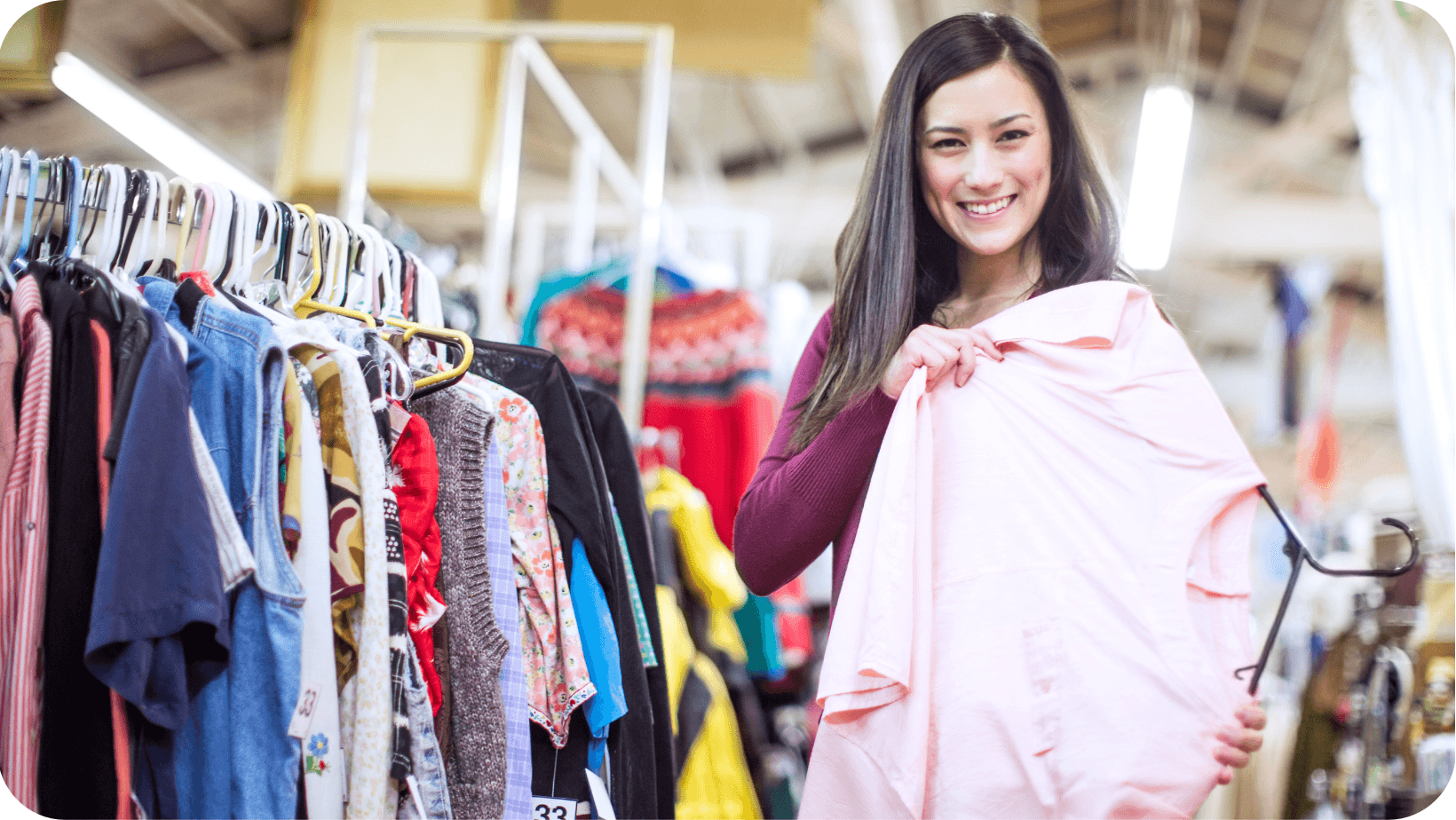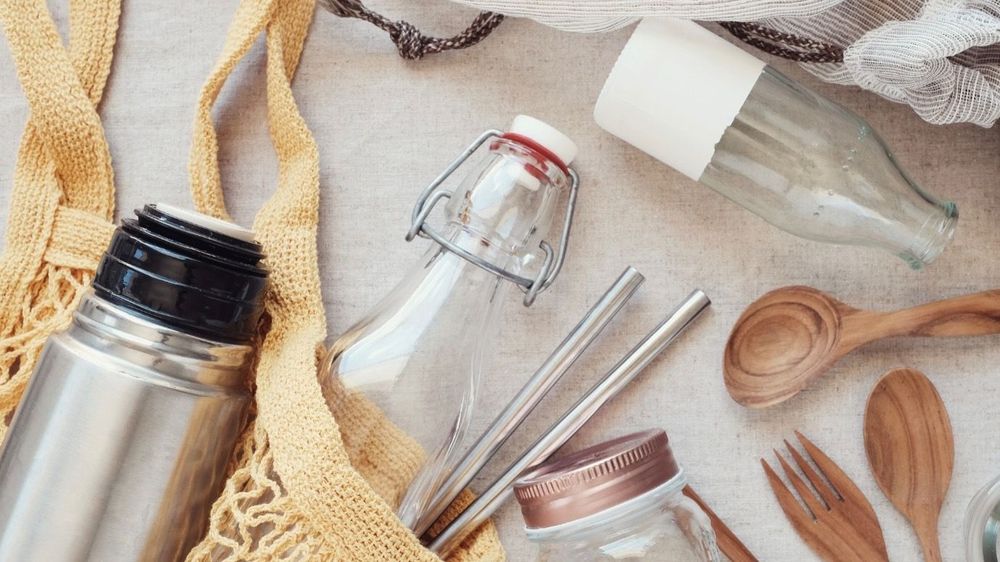A beginner’s guide to zero-waste living
Being vegan and striving towards sustainability often go hand in hand, with veganism being a great way to cut down your carbon footprint and reduce your overall negative impact on the planet.
For those looking to go one step further when it comes to eco-conscious living, zero waste might be for you.
Here is our ultimate beginner’s guide to zero waste living, and how small changes, accumulatively, can have a great impact on reducing waste.
What is ‘zero waste’?
Coined in the 1970s by chemist Paul Palmer the term ‘zero waste’ was initially meant to reduce the amount of chemical waste in laboratories. The term was later picked up by eco-conscious individuals and businesses trying to cut their waste, specifically plastic waste.
The Zero Waste International Alliance defines zero waste as: “The conservation of all resources by means of responsible production, consumption, reuse, and recovery of products, packaging, and materials without burning and with no discharges to land, water, or air that threaten the environment or human health.”
In our current system, it’s almost impossible for consumers to reach actual zero waste, so the term is more of an aspiration than a rule. Related terms you may have heard of include ‘low waste’ and ‘circular living.’
Followers of the zero waste movement aim to reduce what goes into their general waste bin to almost nothing. Overall, recycling should be reduced where possible but not eliminated.
In the early years of the movement, the ‘trash jar’ was a common way to track waste that is still being created.
Shop second-hand
Shopping second-hand has boomed in recent years, with the environmental and economical benefits speaking for themselves. With sites like eBay and Vinted making shopping this way easier than ever, there are rarely reasons to buy something new.
Shopping this way fits perfectly into zero-waste living for two reasons. Firstly, when you buy something new you are essentially telling that business to keep making more of something. From your phone to your clothing, buying something new encourages further production.
Secondly, when you buy something second-hand, you are extending the life of that item and getting more use out of the energy or resources that went into it before it ends up in landfill.
In the UK, we have an abundance of charity shops, making second-hand shopping easier than ever before.

RyanJLane/Getty Images Signature
Find a refill store
In the past decade, the number of refill stores nationwide has boomed. These stores allow users to live more sustainably as they can bring their own containers and find pantry staples, as well as other day-to-day goods all free from packaging. Finding one of these locally to you can be a game changer in your zero-waste journey.
Always carry a tote!
This is a daily habit that many have got used to since the introduction of the plastic bag charge in many supermarkets across the UK, however it can’t be understated. Taking a tote bag around with you wherever you go can really help reduce your waste. They can be folded or rolled and popped into your main bag, or even a jacket pocket.
It’s easy to remember your bags when you’re planning to go shopping but how many times are you out and have to buy a plastic bag for an impromptu purchase? With plastic bags taking over 1000 years to biodegrade, ensuring that you always have a bag on you can really cut down on your use of them.
Soap
Popular books on zero waste living, like Bea Johnson’s Zero Waste Home or Gittemarie Johansen’s Sustainable Badass go into detail about how you can reduce your bathroom waste to almost nothing.
From your moisturiser to the way you shave, there are many alternatives to plastic-wrapped or disposable grooming options. However, for those just starting out, your soap is one of the biggest bathroom changes you can make.
Whether it’s hand soap, body wash, shampoo or face wash, the soap you use often comes in plastic containers. Switching to solid soap can help save both the planet and your shelf space.
Whether it’s a solid conditioner bar from LUSH or a run-of-the-mill bar of soap by your sink, you’ll be surprised how quickly your little bathroom bin becomes obsolete.
Drinks
The drinks industry relies on the concept of single-use. From cans of fizzy drinks to plastic bottles of water, there are many drinks you can grab and go. But while that drink might last you an hour or two, its packaging will, unfortunately, last a lot longer.
Taking your own bottle for water or flask saves you money, with bottled water up to 1000 times more expensive than tap water! A common argument for buying bottled water is that it tastes better? If you live in an area with soft water, like much of the North, Wales and Scotland you might not have this problem. However, water in the South, particularly places like London is incredibly hard and can be cloudy or taste off.
In these cases, investing in a water filter can really help you start to embrace tap water. Filtering hard water can truly improve the quality and help you go cold turkey on bottled water.
Taking your own reusable cup into coffee shops when ordering takeaway drinks also cuts your waste dramatically. For example, if you buy a coffee on your way to work everyday, that’s up to 260 coffee cups per year from one individual. Taking your own cup cuts this number down to zero.
By making these small changes, in any combination, can really help make a difference. For more advanced zero-waste tips, keep your eyes peeled for upcoming content.
Interested in protecting the planet? Take a look at our environment page for more articles on this topic. For more information on the paradox of sustainable fashion, consider having a ‘couture mindset.’
